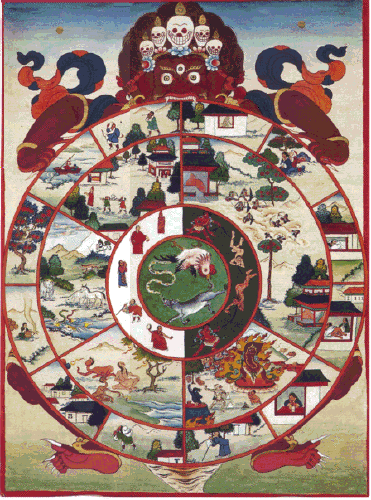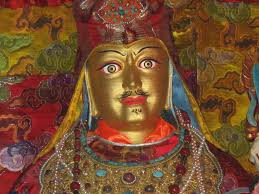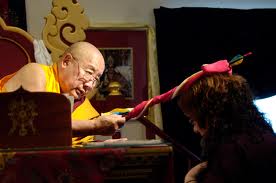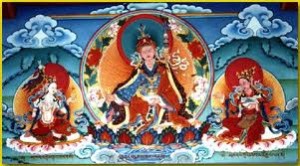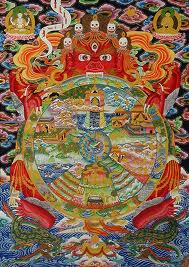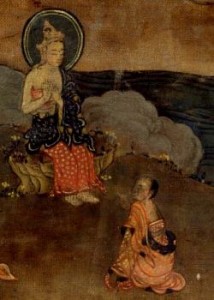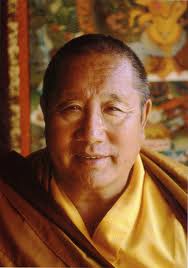The following is adapted from an oral commentary given by His Holiness in conjunction with a ceremony wherein he bestowed the bodhisattva vow upon a gathering of disciples at Namdroling in Bozeman, Montana, November 1999:
Next, consider the gold realm. Gods remain in their realm where they experience immeasurable bliss and happiness for long periods of time. They all have their own palace and gardens, wish-granting trees, and celestial food; everything in their external environment is inconceivably wonderful. Internally they experience only happiness and bliss throughout the entire course of their life. Eventually they exhaust their karma for that rebirth. Prior to that, the dying clairvoyant gods see the place of their future rebirth, which in most cases happens in the hell realm. They take such a rebirth due to having exhausted all tainted virtue that brought them rebirth in the god realm, and then nothing remains for them except an abundance of weighty negative karma. The vast storehouse of merit they once possessed is spent, and they have nowhere to go but to the lowest hell realm. Seeing the irreversible fate that awaits them, and knowing it is too late to reverse that, they experience tremendous suffering. They are powerless to reverse their karma of having to fall from the celestial realm of the gods to the lowest realms in existence.
Buddha therefore taught that there is not even a needle point’s worth of true happiness in samsara. Now you can understand the meaning of that teaching. Even if there is happiness, it always changes because it is impermanent. Happiness in samsara occurs as the result of the karma produced to cause it. Once that cause and result are exhausted, that happiness becomes something else, which is why the term cyclic existence is used to express the nature of life in the six realms. Sentient beings pass from rebirth to rebirth, revolving on this endless wheel of changing realms in dependence on their own karmic accumulations.
If your hair were suddenly to catch fire, you would immediately, without hesitation, try to put out that fire. Likewise, by understanding that cyclic existence is by nature permeated with suffering, and by understanding that it can never be anything other than that, you should immediately, without hesitation, focus on putting out the fire of cyclic existence. Focus totally on effort to extract yourself from this endless suffering of cyclic existence, so that you can achieve the state of permanent bliss and happiness, the state of fully enlightened buddhahood.
Thus it is taught that in order to be successful in reversing strong attraction and attachment to cyclic existence, we must practice dharma. Through the practice of dharma we can reverse attachment to existence and gain more momentum toward liberation, to the point where we realize the state of permanent bliss and cease to return to samsara.
